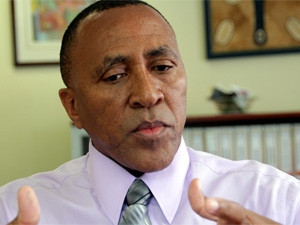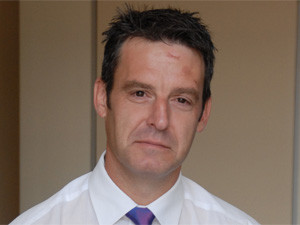
SA's communications regulator - which presides over an industry worth more than R50 billion - is being hampered in carrying out its mandate by a pervasive lack of skills, especially in its technical unit.
The Independent Communications Authority of SA's (ICASA's) recently-appointed CEO Pakamile Pongwana has told the Parliamentary Portfolio Committee on Communications that its engineering and technology department has 76 vacancies, a figure that is higher than its current complement of 53.
Pongwana added the group only has four engineers in the engineering and technical department. He said its markets and competition division, where the skills required include costing specialists, accounting specialists and economists, there were three staff.
This lack of skills is hindering ICASA in delivering on its mandate in areas such as allocating spectrum, ensuring networks provide quality connectivity, and preventing network interference, notes an analyst.
Pongwana, who last year said ICASA would focus on what industry requires, says with issues such as the broadband data policy and network quality, there is a demand for serious skills. He noted there is a need to create an organisation that has the capacity to measure the ability of networks against required goals, which is something ICASA is not currently capacitated to do.
Quality of service could not be delivered when the capacity required to measure it was not there, said Pongwana.
ICASA's vacancy rate is as high as 20%, Pongwana has said. He told the committee it is unable to hire staff at market-related prices and there is currently no incentive for upward mobility as salaries remained virtually unchanged.
Fixing the problem
The regulator's human resources general manager, Busi Mtsweni, told the committee ICASA is involved with an organisational realignment and is looking to do a skills audit. This, she said, aims to close any skills gaps, and then augment existing skills to better enable ICASA to fulfil its strategy.

Mtsweni explained the process involved consultation with organised labour, and then staff and senior management would ensure the new organogram fitted in with ICASA's newly-developed strategy.
ICASA's restructuring strategy has four phases: review the current strategy, a process of job evaluation, create a new remuneration structure and, finally, develop a cost structure, said Mtsweni. She added the first phase involved a benchmarking exercise against similar authorities in France, England and Australia, as well as the Competition Commission and National Lotteries and other regulators of state-owned entities.
Next, ICASA would determine whether its current skills are relevant for its projected deliverables and, if required, job descriptions would be changed to reflect the skills it needs, said Mtsweni. After this, the regulator would carry out a skills audit and salaries would be benchmarked, she added.
So far, ICASA has reviewed its current structure and job profiles, created a project team, and held interviews with senior and general management around the current and anticipated structures, said Mtsweni. The new structure is set to be complete by the end of March.
Mtsweni noted the authority was also working on a plan that would create growth opportunities for the necessary specialists.
No quick fix
Ovum analyst Richard Hurst says ICASA's "drastic" shortage of skills, which hampers it from fulfilling its mandate, is symptomatic of the shortage of technical skills in SA. He says ICASA carries out some of its requirements well, but this is not the case across the board. "It's a bit of a lopsided approach in its regulatory mandate."

Hurst adds that technology moves so fast, ICASA ends up playing catch up. He says it is unable to effectively deal with issues such as network quality and spectrum use.
Even ICASA has admitted its lack of skills is hindering it, adds Hurst. He says even when ICASA has a structure, it will still face challenges. "Forever and a day, ICASA has been challenged by a lack of technical skills."
Hurst doubts the situation will change within the next year, pointing out the skills it needs are at a premium and the people with those skills seek out "exciting" jobs.
Share